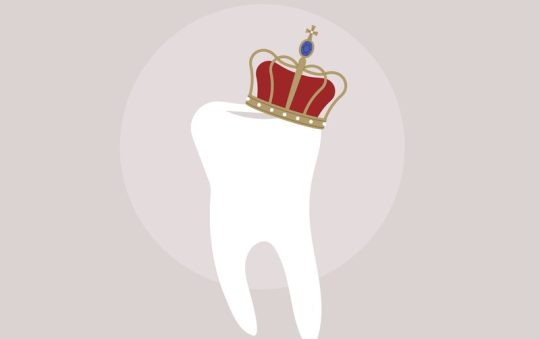Unexpected dental troubles can be upsetting and stressful, but not all are true dental emergencies. Knowing how to recognize serious dental concerns can save money, discomfort, and anxiety. Dental emergencies can happen anytime, but immediate identification helps get timely treatment and avoid complications.
How to Recognize True Dental Emergencies Quickly
A dental emergency involves severe pain, bleeding, trauma, or risk of infection requiring immediate care. These situations cannot wait for regular dental appointments as ignoring them can lead to more severe health problems. Urgent symptoms include intense pain, swelling, trauma, bleeding, infection signs, loose teeth, knocked-out teeth, and broken dental appliances.
Intense Tooth Pain That Doesn’t Ease
A toothache causing unbearable pain, lasting several hours, indicates a dental emergency. Such pain usually signals advanced decay, abscess, infection, or exposed roots. Without emergency treatment, infections spread to other body regions causing further problems.
If the pain persists even after taking over-the-counter painkillers, seek immediate dental intervention. Dentists can conduct X-rays and detailed check-ups and initiate treatment immediately to alleviate the discomfort. Prompt action reduces tooth damage and ensures fast healing.
Bleeding and Swollen Gums
Mild gum bleeding during flossing or brushing is not usually concerning. Heavy bleeding, especially spontaneous or continuous bleeding accompanied by sore, swollen gums, signifies an urgent dental issue. Such bleeding may originate due to gingivitis, periodontitis, or infections.
Consulting a dental professional without delay helps bring accurate diagnosis and treatment promptly. They might prescribe antibiotics, conduct gum treatment, drain abscesses, or other procedures aiding pain relief and eliminating the risk of severe infections.
Severe Dental Trauma or Injury
Accidents damaging teeth or surrounding tissues constitute genuine emergencies. Knocked-out teeth, cracked teeth, or broken teeth from traumatic occurrences require quick action. Emergency treatments become highly successful if patients seek help within the shortest possible duration following the injury.
Preserving the tooth fragment within milk or saliva when rushing to the clinic significantly enhances the dentist’s ability to restore the original tooth. This prompt care also helps prevent possible further dental surgeries and complications down the line.
Symptoms Indicating Dental Infections
Dental infections can present with throbbing pain, swelling, pus discharge, fever, and discomfort while chewing. Untreated infections pose a threat as they can lead to systemic health issues. Symptoms such as dental abscesses, significant swelling, sensitive lymph nodes, and persistent throbbing may hint at underlying periodontal issues that require evaluation by a periodontal dentist in Houston.
Your general dentist or periodontal dentist will evaluate the condition to determine the best course of action, which may include antibiotics, drainage procedures, or root canals for prompt pain relief and infection management. Addressing these issues quickly helps prevent extremely painful episodes and protects your overall health.
Broken or Lost Dental Appliances
Damaged or lost dental appliances, crowns, braces, wires, or fillings triggering intense pain, discomfort, or irritation can be dental emergencies. Such appliance issues may injure oral tissues, causing infection and further discomfort. Sharp edges from dental appliances can also cause mouth sores and soft tissue injuries needing immediate solutions.
Immediate visits with a dental professional enable proper adjustment or replacement of dental appliances. Dentists specialize in ensuring appliances provide comfort and functionality and prevent further oral damage.
Loose or Detached Teeth
Loose teeth without an immediate cause often suggest urgent conditions needing treatment swiftly. Trauma often violently removes or knocks teeth partially from the socket, categorized as dental emergencies. Sometimes, inflamed gums or infections loosening teeth could need an accurate dental professional assessment.
A dentist examines, stabilizes or repositions teeth to aid rapid healing. Early actions contribute significantly to saving teeth and reducing other health complications in your mouth.
Steps to Take in Dental Emergencies Situation
Properly managing a dental emergency situation gives better recovery outcomes and reduces pain levels. If experiencing any urgent tooth concerns, follow these crucial steps calmly but promptly for appropriate handling:
-
Contact Dentist Immediately: Call your dentist for urgent appointments to facilitate quicker care.
-
Carefully Handle Teeth: For knocked-out teeth, handle carefully without touching nerves or roots to prevent injury.
-
Preserve Tooth Properly: Use milk, saliva, or emergency tooth preservation kits to secure teeth.
-
Rinsing Warm Saltwater Solution: Rinse your mouth gently to cleanse wounds and prevent infection.
-
Pain Relief Effectively: Temporary pain relievers may ease discomfort while heading for professional dental help.
Additional Advice for Managing Emergency Dental Problems at Home
-
Applying Cold Compress: Apply ice packs wrapped in cloth to the affected area, reducing swelling and pain.
-
Control Bleeding Quickly: Use clean gauze pressed gently against the bleeding area until professional help arrives.
-
Avoid DIY Methods: Avoid attempting self-treatment solutions that harm or worsen dental cases.
Emergency Preparedness Helps Quick Dental Management
Being prepared with emergency dental contacts is essential for efficient disaster management. Keep the numbers of dental clinics handy in your contacts so you can quickly call for help in an emergency. This kind of emergency preparedness leads to faster relief as prompt communication allows for immediate coordination with healthcare providers.
Your emergency dental kit should also include painkillers, gauze, small containers for avulsed teeth, and cold packs for symptomatic relief as you await professional care. In certain urgent situations, treatments like ozone therapy Houston can be an effective intervention for managing infection and pain until definitive treatment can be obtained from a dental professional. Being equipped with basic first aid materials helps stabilize dental emergencies effectively.
Role of Oral Sedation During Dental Emergencies
During emergency visits, experiencing anxiety and discomfort becomes stressful for many patients. Fortunately, seeing an oral sedation dentist Houston provides comfort during such urgent treatments. Oral sedation dentistry involves administering sedatives orally before treatment commences ensuring patients feel relaxed and anxiety-free.
This sedative effect numbs senses slightly making invasive emergency treatments tolerable. Notably, undergoing emergency procedures while stressed and anxious could negatively impact treatment effectiveness. Communicate clearly with dental professionals about sedation needs allowing customized sedation to help you experience minimal discomfort during emergency treatments.
Closing Remarks
Accurately identifying real dental emergencies allows obtaining quick professional dental treatment without complications, quickly alleviating pain and reducing further complications. Regular checkups alongside effective preventive practices prevent several potential emergencies, improving overall dental health. Be prepared and informed about effective emergency dental management providing smoother, stress-free recovery experiences.





